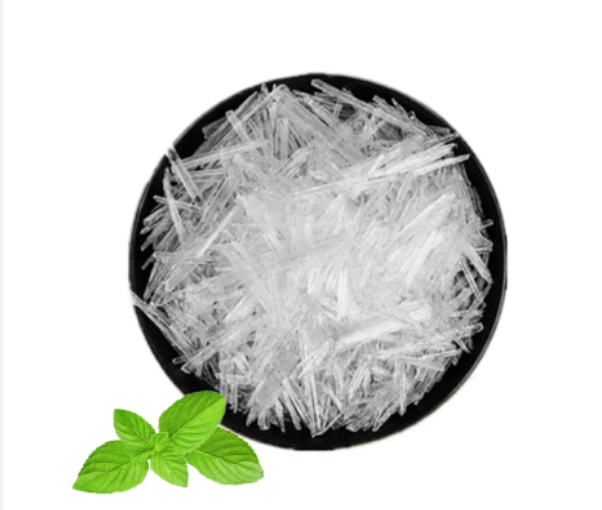
NEWS
Exploring the Potential Antibacterial Properties of Peppermint Crystals
2023-11-06
Menthol crystals are derived from the mint plant and have long been used for their soothing and cooling properties. In addition to its well-known applications in products such as balms, ointments, and inhalers, recent research suggests that menthol crystals may also have antimicrobial properties. In this article, we’ll delve into the scientific research on menthol crystals and explore their potential as an antibacterial agent.
After reading this, if you still have questions about menthol crystals, or want to order high-quality products, please contact fengle to provide you with detailed ordering information!
Learn about menthol crystals:
Menthol crystals are the pure form of menthol, a cyclic alcohol extracted from the leaves of the mint plant (Mentha Piperita). Menthol is known for its ability to produce a cooling sensation when applied to the skin or mucous membranes. It is widely used in traditional medicine for its analgesic, anti-inflammatory and decongestant properties.
Menthol Crystals and Bacterial Growth:
Several studies have investigated the potential antimicrobial effects of menthol crystals. A study published in the Journal of Applied Microbiology found that menthol inhibited the growth of a variety of bacteria, including Staphylococcus aureus, E. coli, and Pseudomonas aeruginosa. The researchers observed that menthol disrupted the cell membranes of these bacteria, causing them to die.
Mechanism:
The antimicrobial properties of menthol crystals can be attributed to their ability to disrupt bacterial cell membranes. Menthol molecules interact with the lipid bilayer of cell membranes, causing destabilization and permeabilization. This disruption results in leakage of intracellular components and ultimately the death of the bacteria.
Antibacterial spectrum:
Menthol crystals have demonstrated broad-spectrum antimicrobial activity against Gram-positive and Gram-negative bacteria. Gram-positive bacteria, such as Staphylococcus aureus and Streptococcus pneumoniae, are particularly susceptible to the effects of menthol. In addition, menthol also exhibits inhibitory effects against a variety of antibiotic-resistant bacteria, including methicillin-resistant Staphylococcus aureus (MRSA).
Potential applications:
The potential antimicrobial properties of menthol crystals open up a variety of possibilities for its applications in medicine and personal care. Menthol-containing formulations could be explored as potential alternatives or adjuncts to traditional antimicrobial agents. Additionally, menthol may preserve food by inhibiting the growth of bacteria that cause spoilage.
Considerations and future research:
While preliminary research on the antimicrobial properties of menthol crystals is promising, more research is needed to fully understand its effectiveness and safety. Factors such as concentration, formulation and delivery method need to be optimized to obtain maximum antimicrobial activity. Additionally, the potential development of menthol resistance should be carefully monitored.
Menthol crystals derived from the mint plant show promise as an antibacterial agent. Their ability to disrupt bacterial cell membranes and inhibit the growth of various bacteria makes them a potentially valuable addition to the fight against microbial infections. However, further research is needed to determine the optimal formulation and concentration to achieve maximum efficacy and to assess its long-term safety. The exploration of the antibacterial properties of menthol crystals opens up exciting possibilities for their applications in medicine, personal care products and food preservation.


